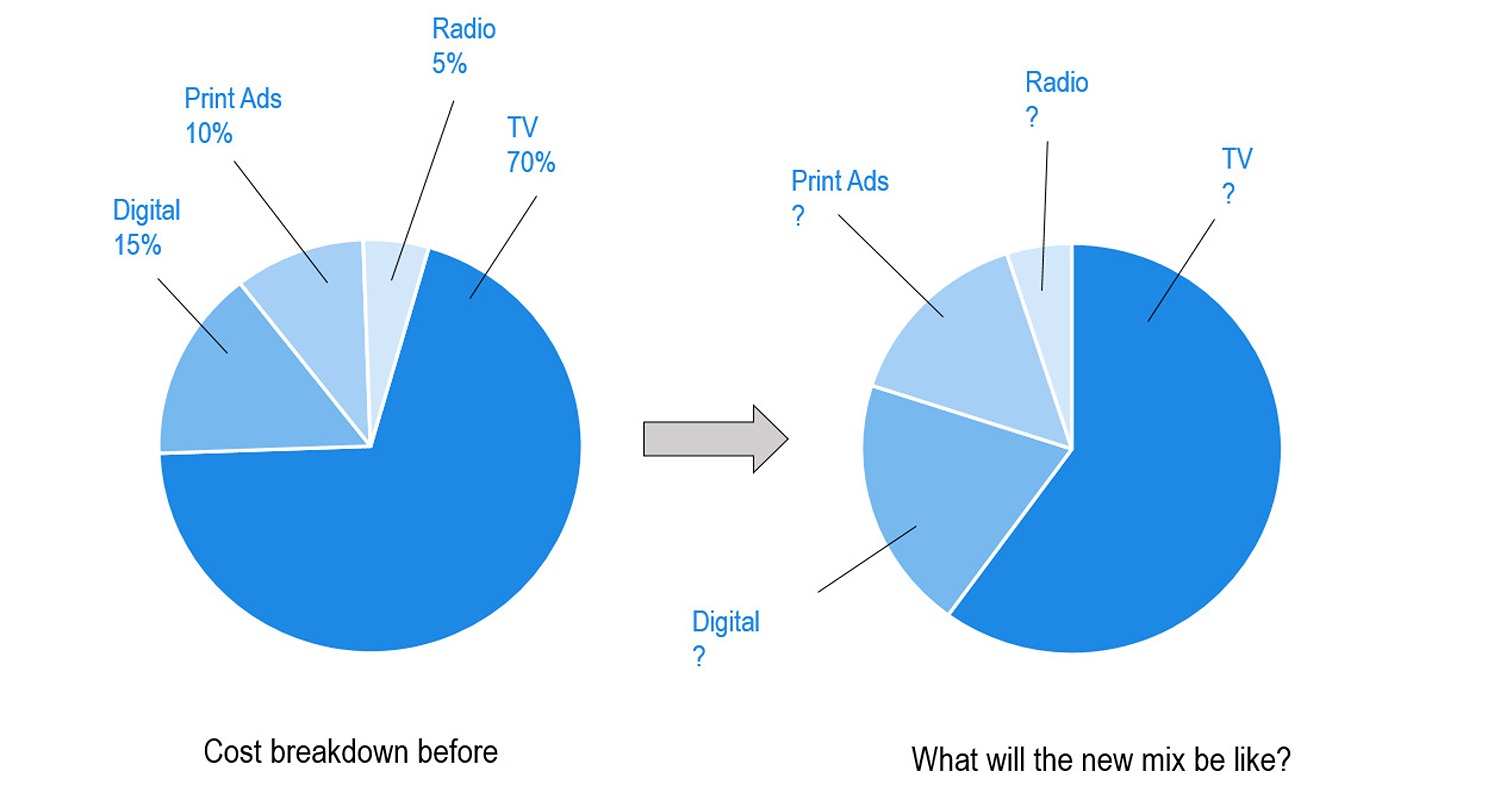If you are new to digital marketing, you might be tempted to invest heavily in it based on the reviews of other businesses that went all digital. However, not setting a budget is a grave pitfall. So, how does having a budget help you avoid the traps of digital marketing?
Firstly, the budget sets financial restrictions that ensure you pay close attention to ROI and resource allocation. Secondly, it keeps you from spending on ineffective marketing strategies or wasting resources on the latest trends.
To know more about the various pitfalls of digital marketing and what is the reason for having a budget, continue reading this article further!
How does having a budget help you avoid the traps of digital marketing
This section elaborates on the popular question, ‘What is the purpose of having a budget?’ While there are no fixed answers, it is essential to know that setting a budget prevents marketing agencies from making unfair money. The four most significant answers in marketing are explained below.
The Importance Of Having A Budget
Having a budget in digital marketing is essential as it helps you navigate potential pitfalls and maximize your return on investment (ROI). Here’s how having a budget can help you avoid traps in digital marketing.
Financial Restrictions
Setting a budget reminds you of your financial means and prevents squandering.  Without a budget, it’s easy to get carried away with digital marketing expenses, leading to financial strain or even failure to allocate resources effectively.
Without a budget, it’s easy to get carried away with digital marketing expenses, leading to financial strain or even failure to allocate resources effectively.
ROI Attention
A budget ensures you pay close attention to your digital marketing efforts’ return on investment (ROI).  Allocating specific funds to different marketing channels or campaigns can aid in adjusting strategies accordingly to maximize ROI.
Allocating specific funds to different marketing channels or campaigns can aid in adjusting strategies accordingly to maximize ROI.
Resource Allocation
A budget helps you allocate resources strictly based on your priorities and goals. This prevents scattering resources across too many channels or initiatives, focusing only on what is best for your business.
Risk Mitigation
Digital marketing involves inherent risks, such as investing in campaigns that may not yield the desired results.  Setting a budget can limit your exposure to risk by allocating funds conservatively and testing strategies before scaling up investment.
Setting a budget can limit your exposure to risk by allocating funds conservatively and testing strategies before scaling up investment.
Key Digital Marketing Traps To Avoid Without A Budget
You now know why having a budget is essential. Knowing which pitfalls to be wary of can significantly help with that. Additionally, adopt a strategic mindset and prioritize activities with the highest ROI potential.
Overspending On Ineffective Marketing Tactics
Without a budget, one may overspend on marketing tactics that may not deliver the desired results. You might invest heavily in channels or strategies, such as  RTB Marketing , that may fail to generate significant returns.
RTB Marketing , that may fail to generate significant returns.
The Pitfalls of Not Being Able to Track ROI
A budget provides the framework for tracking your return on investment (ROI). With one, you can accurately track the performance of your marketing campaigns. Otherwise, you may continue to invest in underperforming tactics, wasting valuable resources.
Wasting Resources On Latest Trends Without Strategy
In the landscape of digital marketing, new trends emerge frequently. Without a budget to guide your decision-making, you may be tempted to chase after every new trend without a clear strategy in place.  This approach can result in diluted messaging.
This approach can result in diluted messaging.
How To Create An Effective Digital Marketing Budget
You need to know how having a budget helps avoid digital marketing traps. Creating a budget for a digital marketing campaign requires studying various factors. Follow the pointers below to make the process a seamless experience.
Assessing Your Business Goals And Objectives
Identify your overarching business goals and specific marketing objectives. Is it increasing brand awareness? You may want to improve your customer retention.  Ensure your marketing goals are realistic and will help achieve the enterprise’s objectives.
Ensure your marketing goals are realistic and will help achieve the enterprise’s objectives.
Determining A Realistic Budget Based On Resources
Evaluate your financial resources, keeping your revenue and other operational expenses in mind.  Conduct market research to understand industry standards and typical marketing budgets for businesses like yours.
Conduct market research to understand industry standards and typical marketing budgets for businesses like yours.
Allocating Funds To Different Marketing Channels Strategically
Rank your marketing channels hierarchically.  Remember that channels may require different budget allocations depending on seasonality, campaign objectives, and audience behavior.
Remember that channels may require different budget allocations depending on seasonality, campaign objectives, and audience behavior.
Setting Clear Goals And Objectives
With clear goals, you will be working in the light. To avoid that, identify your resources and target audience. Furthermore, you will need to segment the target markets for tailored efforts.
Furthermore, you will need to segment the target markets for tailored efforts.
Identifying Resources And Target Audience
Determine what resources you’ll need to achieve your goals and objectives. This could include budget, personnel, technology, and other tools or assets necessary for your marketing efforts.
First, study the market to gain a deep understanding of your audience. This involves identifying your ideal customer’s demographics, psychographics, behaviors, preferences, and pain points. Additionally, surveys and interviews should be considered to gather more insights.
See Also: How Do Marketing Agencies Make Money?
Segmenting Your Audience To Tailor Marketing Efforts
Divide your target audience into smaller groups. The division can be based on homogenous qualities. This allows you to target specific segments and improve ad effectiveness. 
Customize your marketing strategies and channels to resonate with each audience segment. This may involve exhaustive website-driven content marketing or using different advertising platforms to suit the preferences of each segment.
Read more to get an insight into the topic “How does having a budget help you avoid the traps of digital marketing?”
Researching Target Audience
For marketers, the selection of the target audience is a two-fold process. Firstly, you will need to undertake market research. To follow it up, you must also measure the efficacy of the marketing channels you intend to use – concerning findings from previously undertaken ground research. This same step also helps agencies sell digital marketing services.
Conducting Market Research
Define what you want to uncover. Are you trying to understand customer preferences or identify new market opportunities? Once your objective is narrowed down, determine the most appropriate research methods.
These could include surveys, interviews, focus groups, observation, or secondary research using existing data sources.
Analyzing The Effectiveness Of Marketing Channels
Analyzing marketing channels involves assessing their reach, engagement, and conversion rates to determine their effectiveness in reaching target audiences and driving desired actions.  This informs decisions regarding resource allocation and maximizing ROI.
This informs decisions regarding resource allocation and maximizing ROI.
Tracking And Analyzing Performance
By tracking and analyzing the performance of a digital marketing strategy, you can identify its strengths and weaknesses. In turn, this will help make data-driven strategies that provide enhanced outcomes.
Implementing Tracking Tools And Analytics
Implementing tracking tools and analytics enables monitoring of marketing performance metrics such as website traffic,![]() conversion rates, and customer engagement, providing valuable data for informed decision-making and strategy refinement.
conversion rates, and customer engagement, providing valuable data for informed decision-making and strategy refinement.
Using Data-Driven Insights To Optimize Marketing Efforts
Utilizing data-driven insights derived from tracking and analytics helps optimize marketing efforts by identifying trends,  understanding consumer behavior, and targeting specific audience segments effectively, leading to improved campaign performance and ROI.
understanding consumer behavior, and targeting specific audience segments effectively, leading to improved campaign performance and ROI.
The Benefits Of Budgeting In Digital Marketing
While budgeting in digital marketing provides many benefits, the two most significant include ROI maximization and control over marketing activities.
Maximizing ROI By Investing In Effective Strategies
Budgeting in digital marketing enables businesses to allocate resources strategically, focusing investments on high-performing strategies.  This maximizes ROI by ensuring funds are directed towards channels and tactics that generate the most significant returns.
This maximizes ROI by ensuring funds are directed towards channels and tactics that generate the most significant returns.
Gaining Better Control Over Marketing Activities
Additionally, budgeting in digital marketing offers better control over activities by setting clear spending limits. Moreover, it helps in prioritizing initiatives and tracking expenses.
 This control ensures resources are allocated efficiently, enabling marketers to make informed decisions.
This control ensures resources are allocated efficiently, enabling marketers to make informed decisions.
See Also: How to Sell Digital Marketing Services? 9 Ways
FAQs
Conclusion
Thus, the answer to the question, ‘How does having a budget help you avoid the traps of digital marketing?’ lies in financial constraints, drawing particular attention to ROI. Additionally, it gives marketers exceptional control over their digital marketing strategies, such as the channels to reach the target audience.


